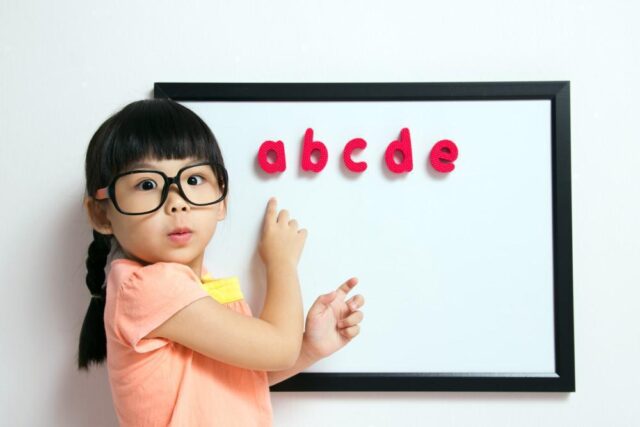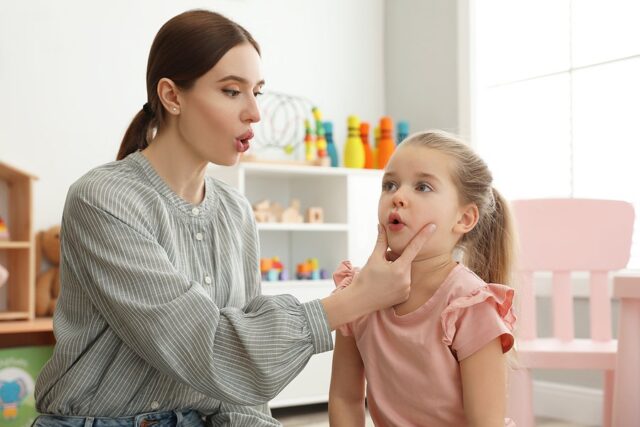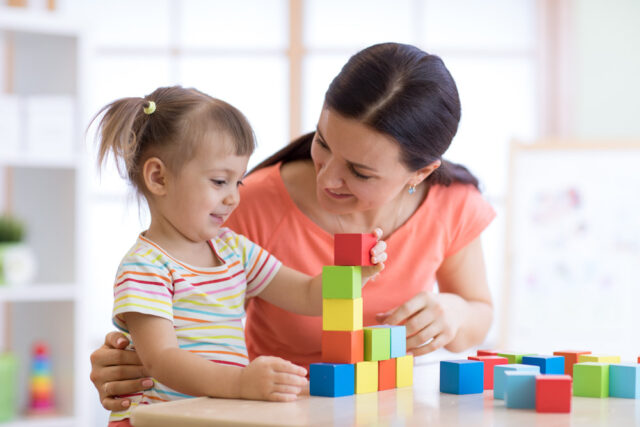
If you have a child who is experiencing a speech delay, it can be stressful and confusing. Understanding what is considered normal regarding speech development can help determine if your child is on track or if they may benefit from speech therapy.
This article will cover some common speech development milestones and provide information on speech therapy options for toddlers.
What are Speech Development Milestones?
Speech development milestones are markers of progress that children typically achieve as they learn to communicate. These milestones involve the development of speech sounds, language skills, and the ability to use language in social situations.
When Do Speech Development Milestones Occur?
Every child is different, so it’s important to remember that the ages listed below are rough estimates. However, here are some general guidelines for when speech development milestones typically occur:
- By 6 months: Most babies coo and make gurgling sounds.
- By 9 months: Many babies begin to use simple syllables like “ma” or “da.”
- By 12 months: Most toddlers have a few words in their vocabulary and are beginning to put two words together (e.g., “more juice”).
- By 18 months: Most children have a vocabulary of around 50 words and are beginning to use two-word phrases.
- By 2 years: Most children use three-word phrases and can name everyday objects.
What if My Child is Behind on Speech Development Milestones?

If your child needs to catch up on some speech development milestones, it doesn’t necessarily mean that there is a problem.
However, if you have concerns about your child’s speech and language development, it’s essential to speak with a speech-language pathologist. A speech-language pathologist is a trained professional who can assess your child’s communication skills and determine if speech therapy is necessary.
What is Speech Therapy for Toddlers?
Speech therapy is a type of treatment that helps children improve their communication skills. It can involve working on speech sounds, language skills, and social communication.
Speech therapy can be conducted one-on-one with a therapist or in a small group. It can be done in person or through teletherapy (online therapy).
Assessing Your Child’s Needs
Speaking with a Speech-Language Pathologist
If you think your child may benefit from speech therapy, speaking with a speech-language pathologist is essential. They will be able to assess your child’s needs and develop a treatment plan that is tailored to your child’s specific needs.
Factors that Contribute to Speech Delays

Several factors can contribute to a child’s speech delay. Some children may have hearing loss or other medical conditions affecting their communication ability.
Others may have difficulty speaking, such as controlling the muscles in their mouth or coordinating their breath and voice. Still, others may have difficulty understanding or using language due to developmental delays or learning challenges.
Importance of Early Intervention
Early intervention is key regardless of the cause of a child’s speech delay. The earlier a child receives speech therapy, the more likely they are to make progress and catch up to their peers.
If you have concerns about your child’s speech and language development, it’s important to speak with a speech-language pathologist as soon as possible.
Individual Progress and Working with a Therapist
It is also important to remember that every child is different and will progress at their own pace. Some children may catch up to their peers quickly, while others may need more time and support.
It is important to work closely with your child’s therapist and follow their recommendations to help them reach their full potential.
According to optimaspeechtherapy.com, speech therapy results for kids drastically improve if you can practice the exercise at home with your child in between sessions.
Creating a Language-Rich Environment at Home

In addition to working with a speech-language pathologist, it is also important to create a language-rich environment for your child. This means providing your child with opportunities to hear and use language. You can do this by:
- Read to your child: Exposing your child to various written materials, such as books, magazines, and newspapers. Reading with your child and discussing the content can help them learn new words and concepts and foster a love of reading.
- Encourage your child to write and tell stories, which can help them practice creatively using language.
- Use everyday opportunities to talk with your child: You can talk about what you’re doing, what you see, and what you’re feeling. This helps build your child’s vocabulary and understanding of language.
- Encourage your child to speak and try new words: Encourage them to express themselves and use their words, even if they are not speaking perfectly. This will help them build confidence and improve their language skills.
- Provide your child with various toys and games that encourage language development: Look for toys and games that allow your child to use their words and communicate with others.
- Encouraging your child to engage in social activities can include playing with other children, joining a playgroup, or participating in activities with adults.
- Watch educational television shows or videos with them. Many educational programs for children are designed to be language-rich, with characters using a wide range of vocabulary and engaging in conversations about various topics. Watching these programs with your child can provide them with valuable exposure to the language.
- Engage your child in activities that involve language and communication. This can include singing songs, playing word games, or doing puzzles that involve reading and following directions. These types of activities can help your child practice using language and can also be a fun and enjoyable way for you to bond with your child.
- Encourage your child to ask questions about the world and to engage in conversations with family members, friends, and peers. This can help your child practice using language in a social setting and can also help them develop their communication skills.
Conclusion

Understanding speech development milestones can help you determine if your child is on track or if they may benefit from speech therapy. If you have concerns about your child’s speech and language development, it’s important to speak with a speech-language pathologist.
They can assess your child’s communication skills and determine if speech therapy is necessary. If your child needs speech therapy, it can be done in person or through teletherapy and tailored to your child’s specific needs.
At Nobles Speech Therapy, we offer a range of speech therapy services to help children from ages 3 to 21 improve their communication skills. If you suspect your child is delayed in speech and language development, we can help. To learn more about our services and how we can support you or your child on their journey to better communication, visit our website at www.noblesspeechtherapy.com.












